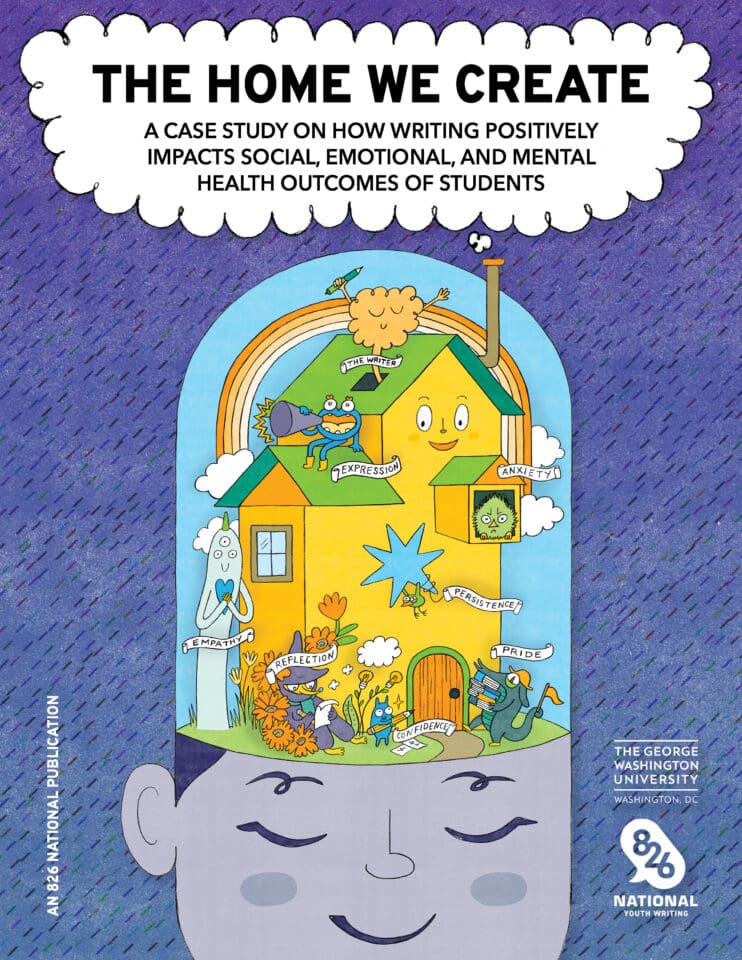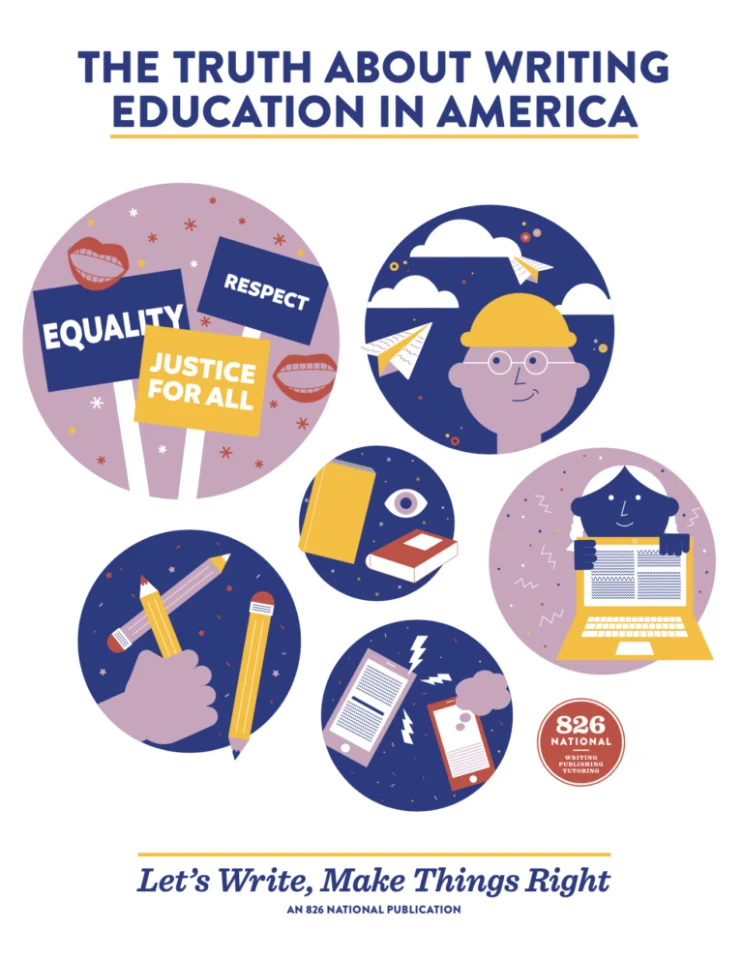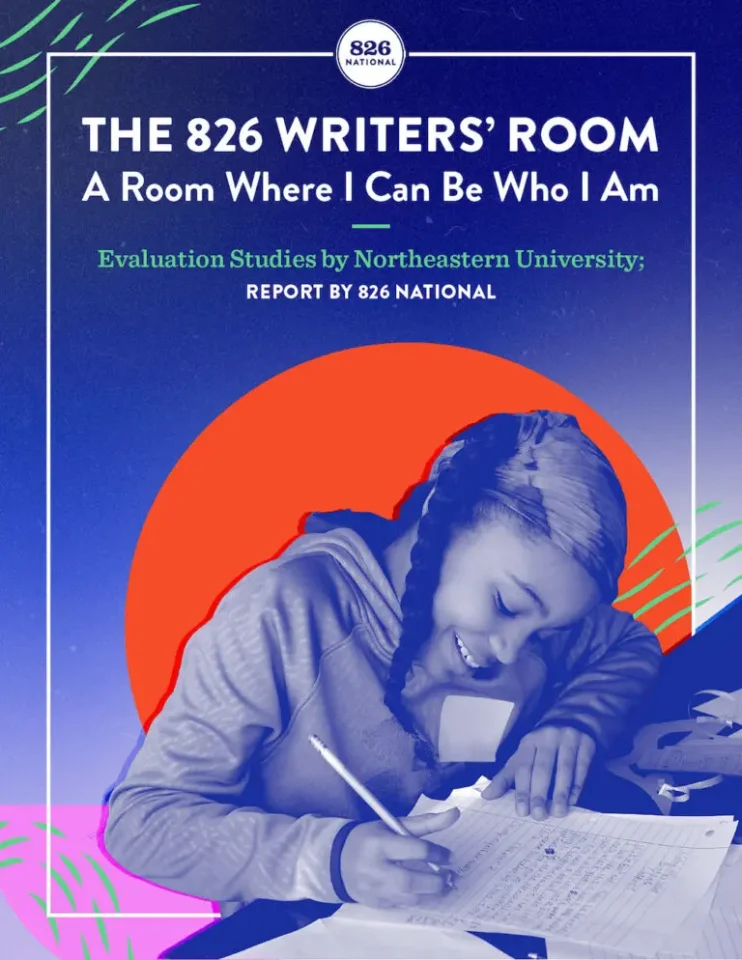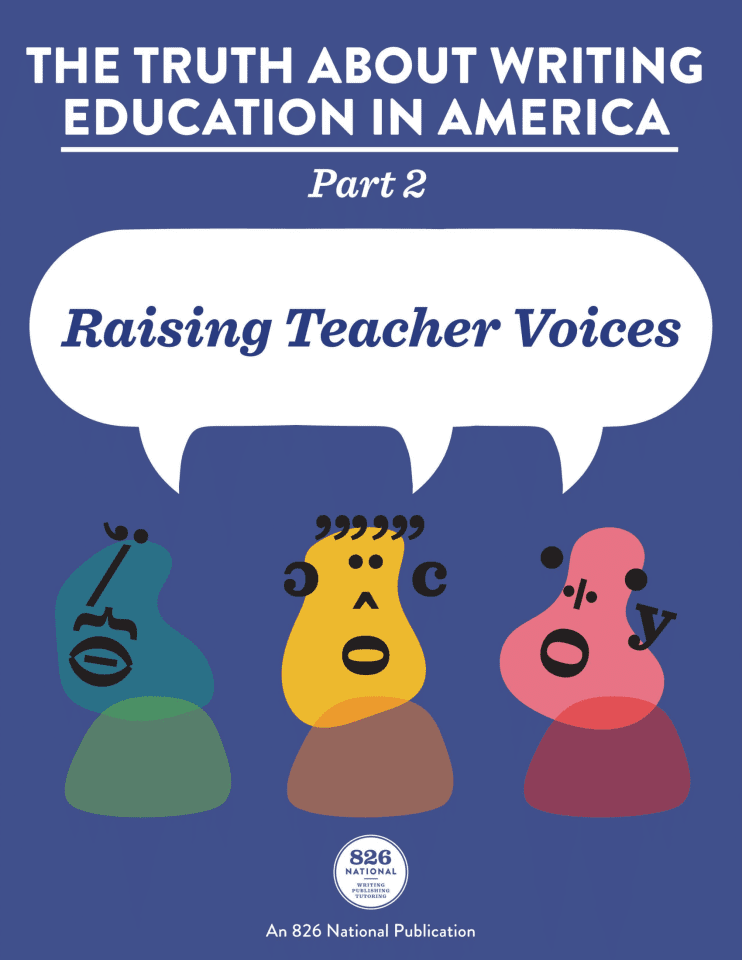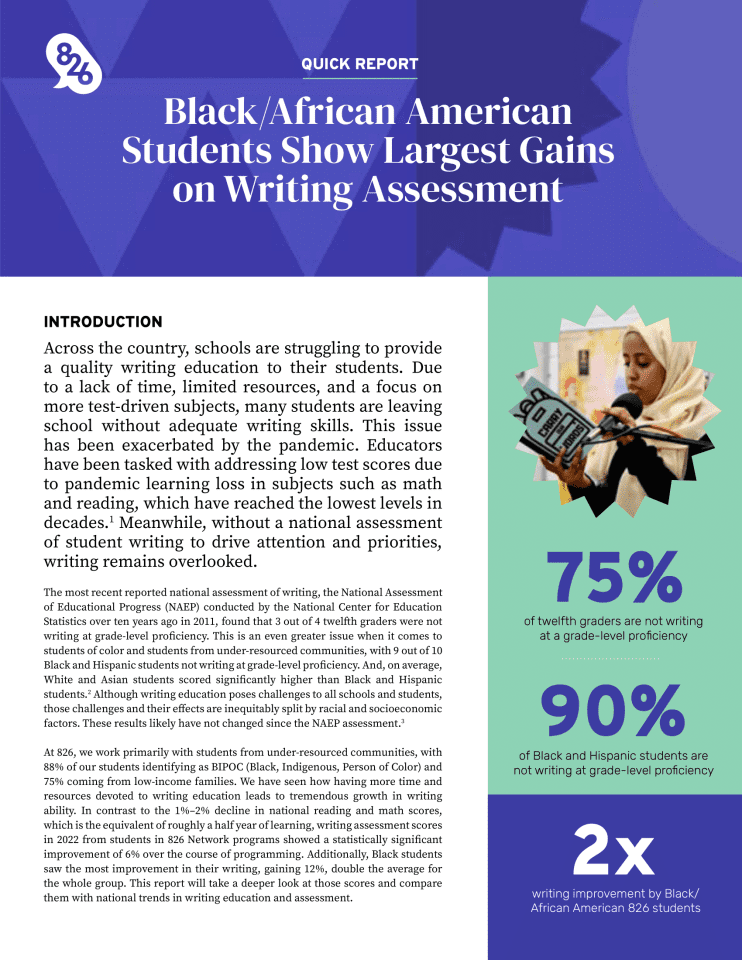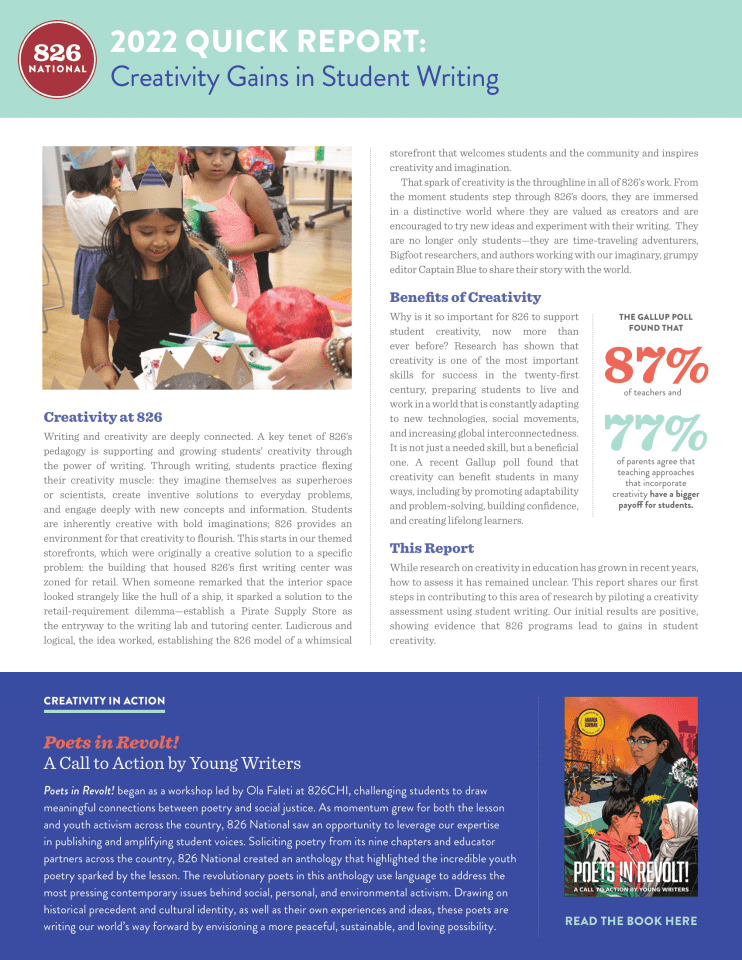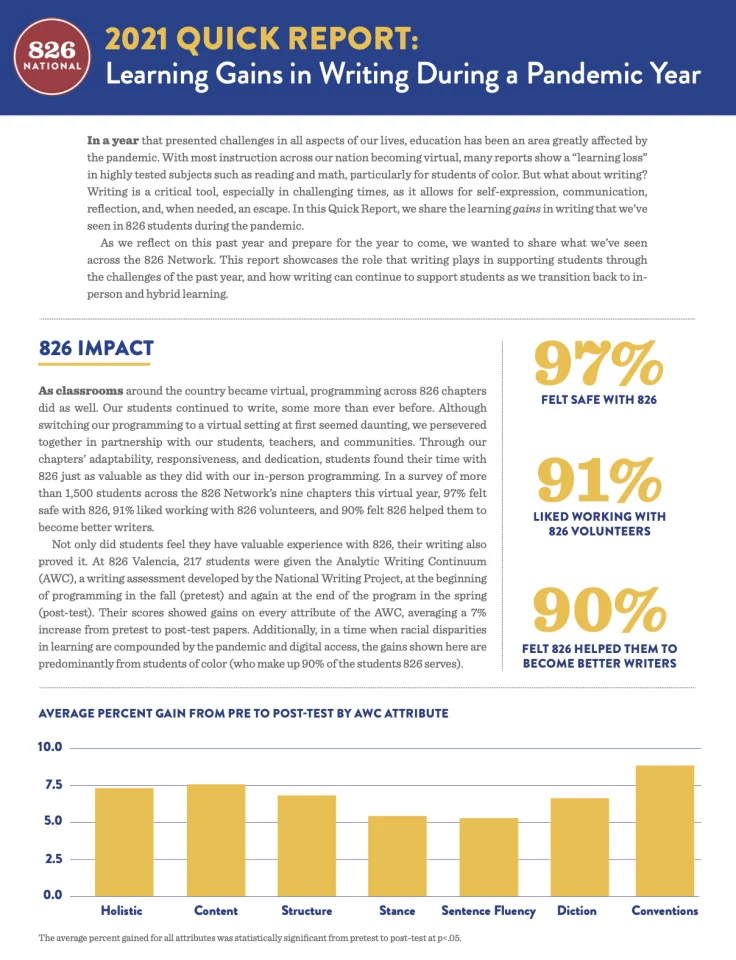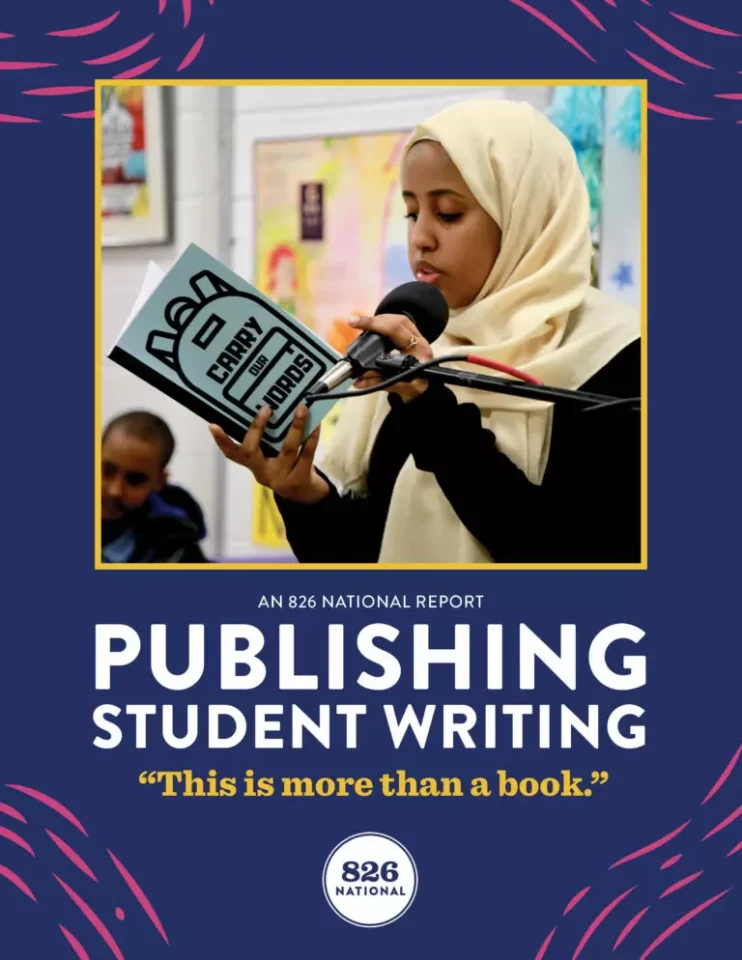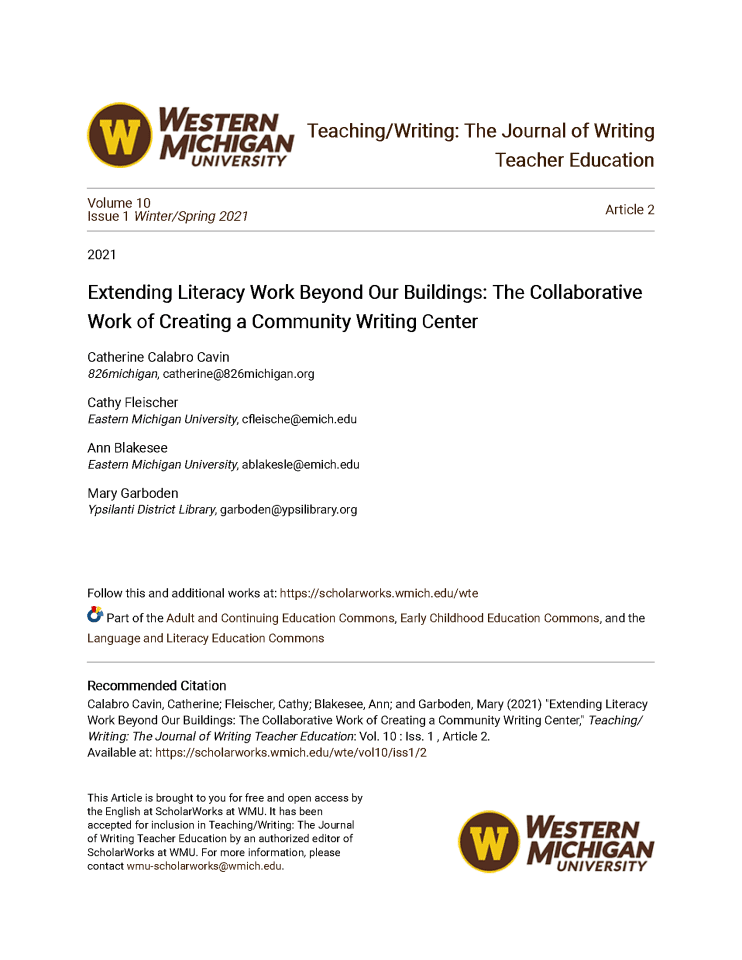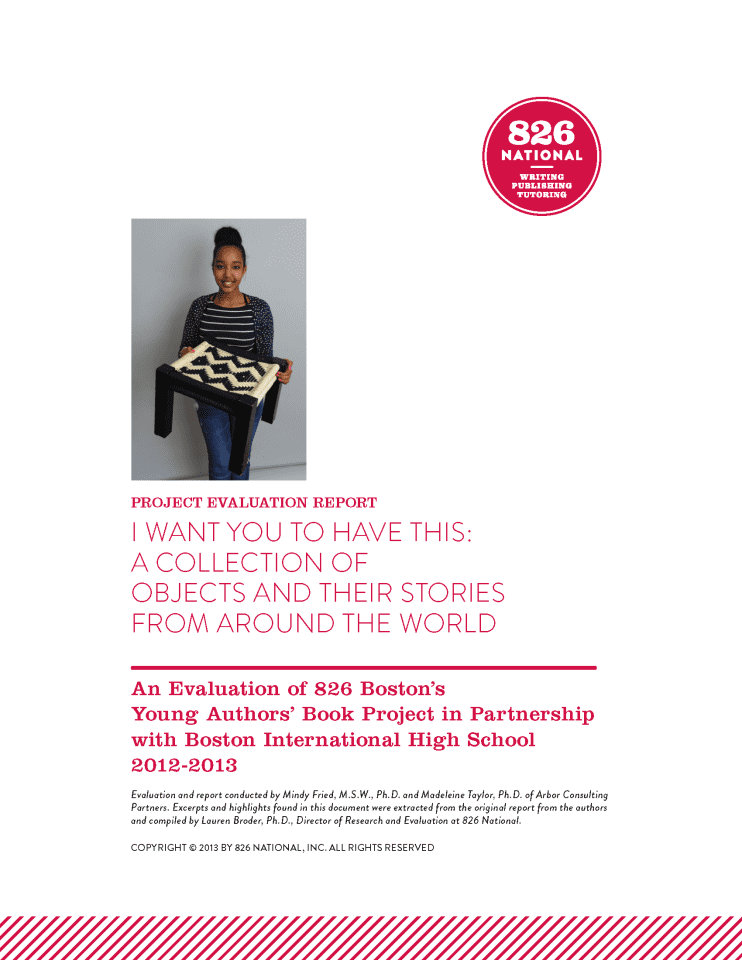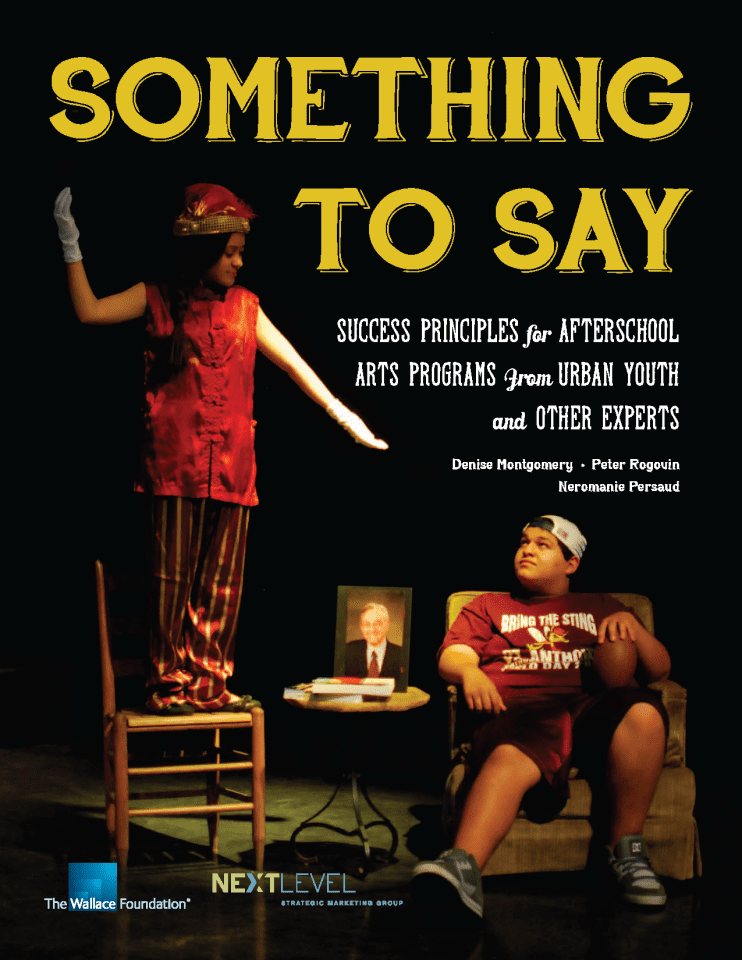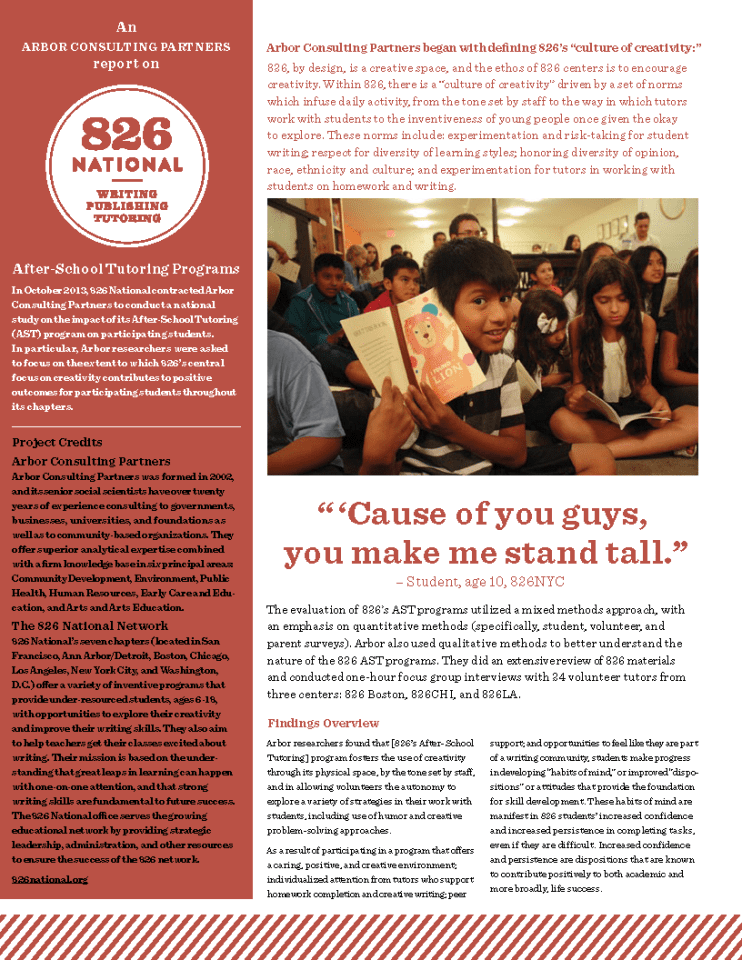Advocacy and analysis for a more creative future
Our research includes reports on writing education and best practices and key findings from across the 826 Network. We also invite independent evaluations of 826 programs to continuously improve our approach.
Explore the latest writing research from 826
Why Writing
These reports focus on the current state of writing education from different perspectives.
Quick Reports
These short reports highlight a key 826 finding or methodology.
Best Practices
Each report shares an 826 best practice, research on why it works, and how any educator can implement it in their classroom.
External Reports
These reports summarize evaluations of 826 work by trusted third parties.
